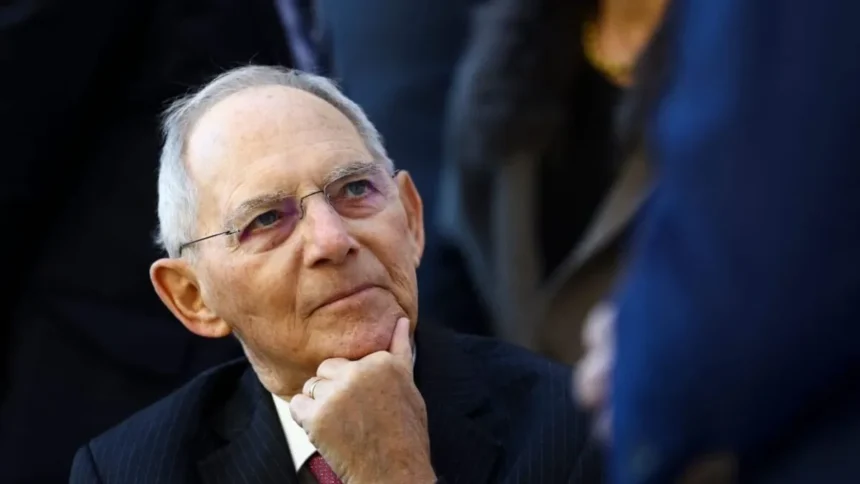Wolfgang Schaeuble, a key architect of German reunification in 1990 and later a central figure in Europe’s response to the debt crisis, has passed away at the age of 81. As Chancellor Angela Merkel’s finance minister, Schaeuble played a pivotal role in navigating the challenges posed by Greece’s financial turmoil and advocating for greater European integration. However, his legacy is marked by both commendation for his commitment to unity and criticism for Germany’s austerity-focused approach.
Schaeuble’s political career began to gain prominence with his involvement in the negotiations for German reunification in 1990. Serving in various ministerial roles, he earned a reputation as a skilled negotiator and a proponent of a united Europe. His commitment to fostering stronger ties within the European community became a recurring theme throughout his career.
In October 2009, Schaeuble assumed the role of Germany’s finance minister, just as revelations about Greece’s soaring budget deficit triggered a financial crisis that reverberated across Europe. Germany, under Schaeuble’s guidance, adopted a stance emphasizing fiscal austerity as a means to address the crisis. The strategy aimed at stabilizing the Eurozone and preventing further economic fallout but drew criticism for its stringent measures and perceived lack of solidarity.
Schaeuble’s tenure witnessed persistent efforts to achieve deeper European integration and establish a stricter fiscal rulebook. Advocating for measures to strengthen the economic foundation of the European Union, he sought to prevent future financial crises by imposing tighter controls and regulations. However, the emphasis on austerity measures continued to fuel debates about the balance between fiscal discipline and social responsibility.
About Wolfgang Schaeuble’s legacy:
Wolfgang Schaeuble’s legacy is a complex tapestry of achievements and controversies. His role in German reunification and dedication to European unity are acknowledged, but the austerity measures employed during the Eurozone crisis sparked criticism. Some argued that the focus on fiscal discipline disproportionately burdened struggling economies, raising questions about the equitable distribution of economic recovery efforts.
Wolfgang Schaeuble’s passing marks the end of an era for European politics. His contributions to German reunification and advocacy for a united Europe are indelible aspects of his legacy. However, the controversies surrounding the austerity measures during the Eurozone crisis highlight the challenges of striking a balance between fiscal responsibility and the need for collective support. As Europe reflects on Schaeuble’s impact, discussions about the future of the European Union and its economic policies continue to evolve.






